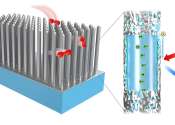Los Alamos National Laboratory
The Los Alamos National Laboratory (LANL) was established in 1943 is a Department of Energy funded lab managed by Los Alamos National Security LLC. The primary purposes of LANL are involve national security, outer space, renewable energy, medicine, technology and nanotechnology/supercomputing. LANL conducts testing of materials and employs material engineers, chemists, physicists, biologists and other professionals. LANL publishes its findings and research on-line and news releases. LANL has an operating budget of over $2.2 billion.
- Address
- P.O. Box 1663. Los Alamos, NM 87545
- Website
- http://www.lanl.gov/
- Wikipedia
- http://en.wikipedia.org/wiki/Los_Alamos_National_Laboratory
Some content from Wikipedia,
licensed under CC BY-SA









